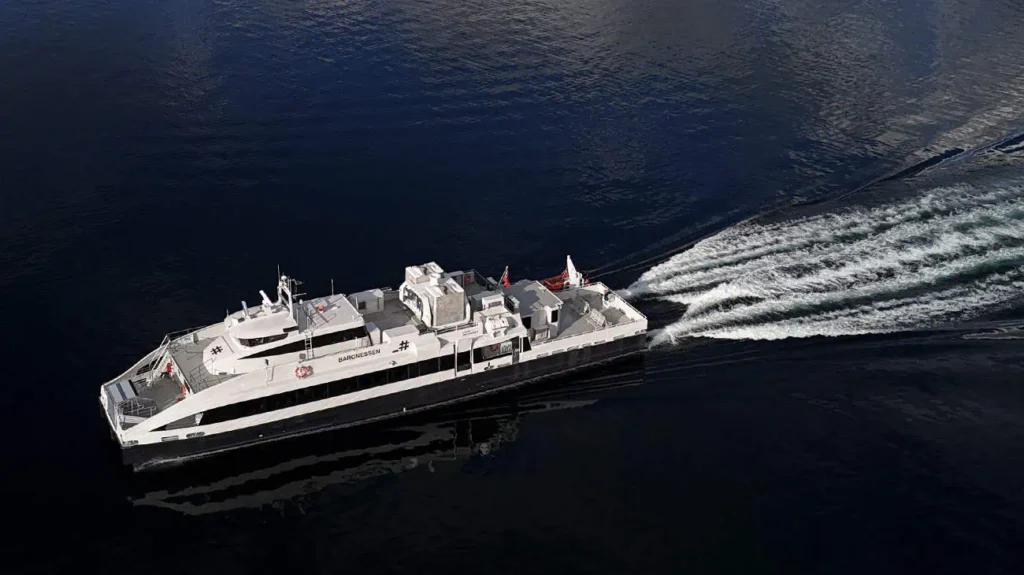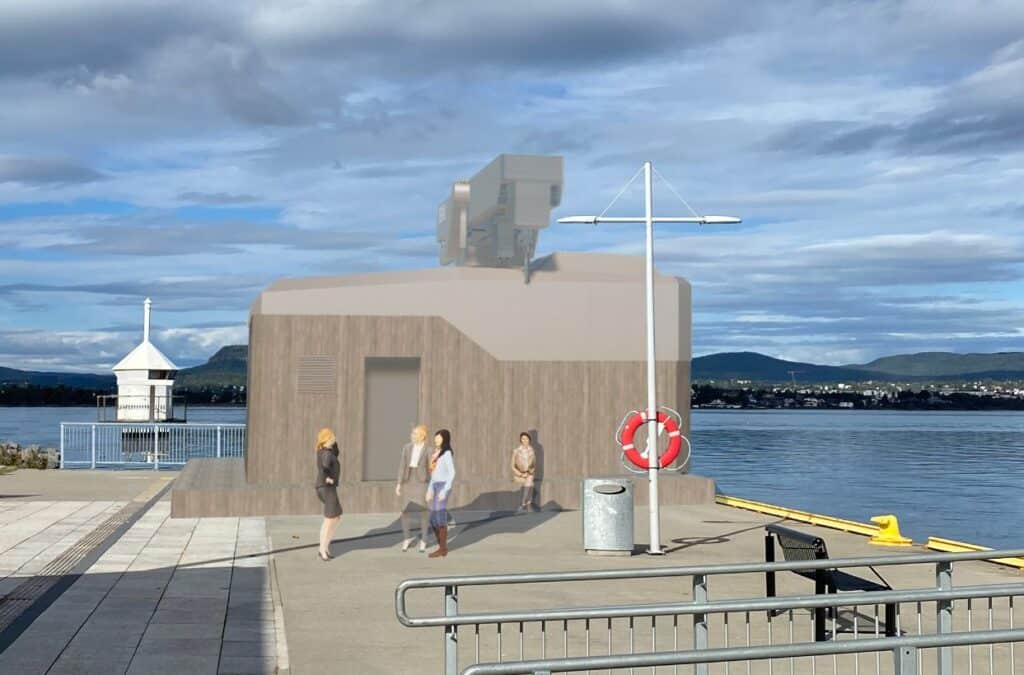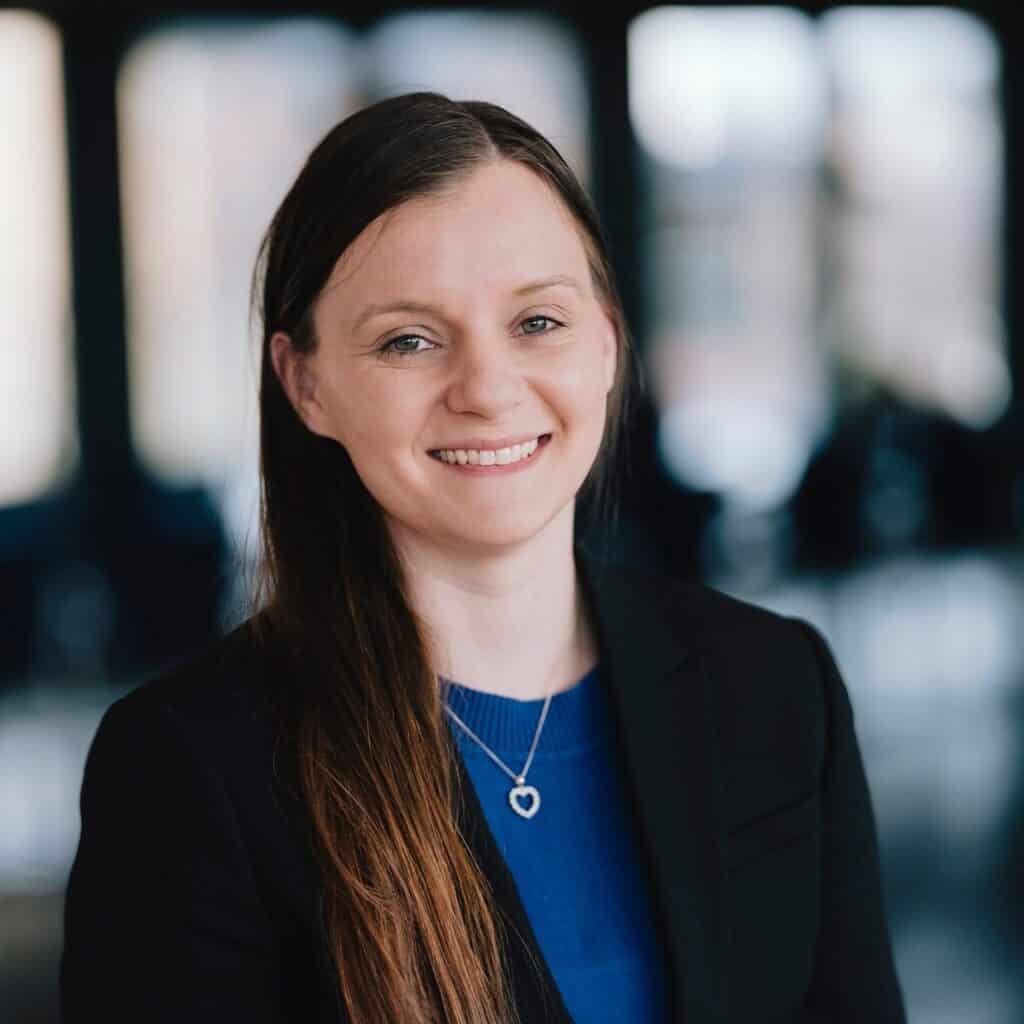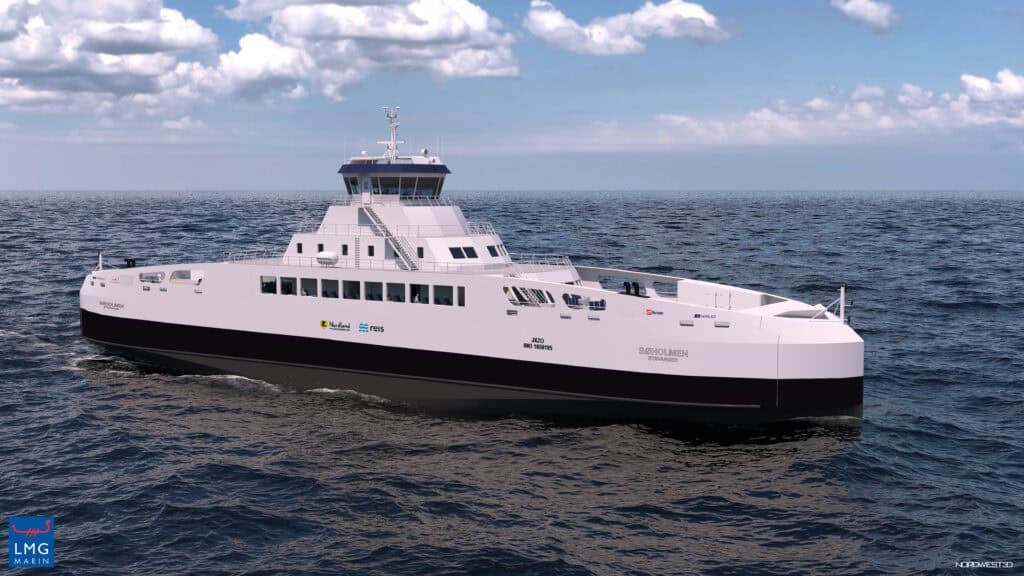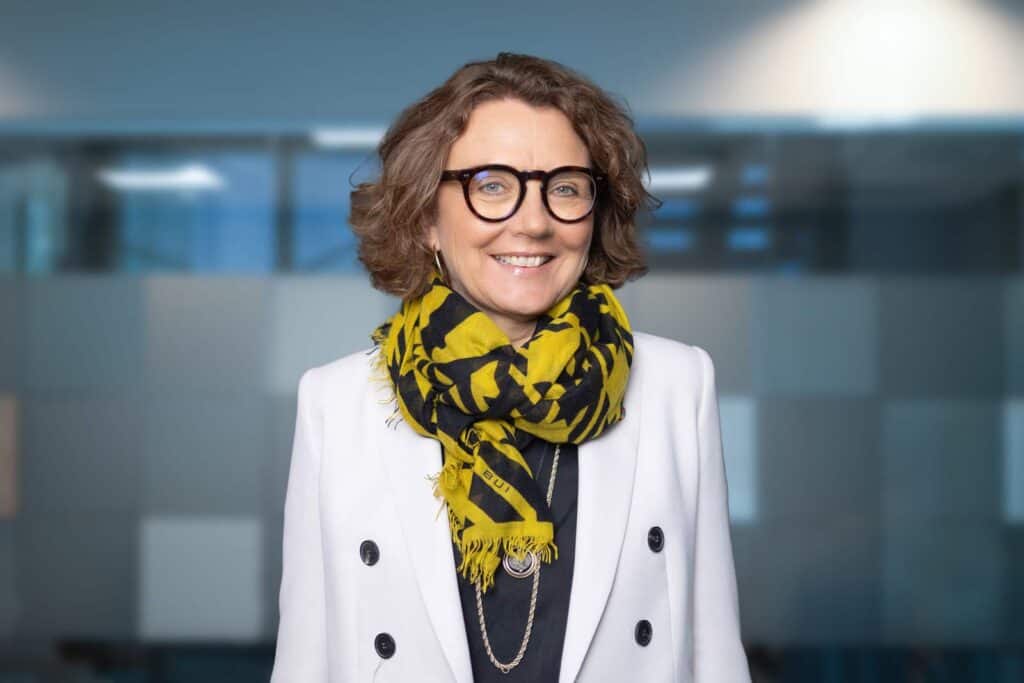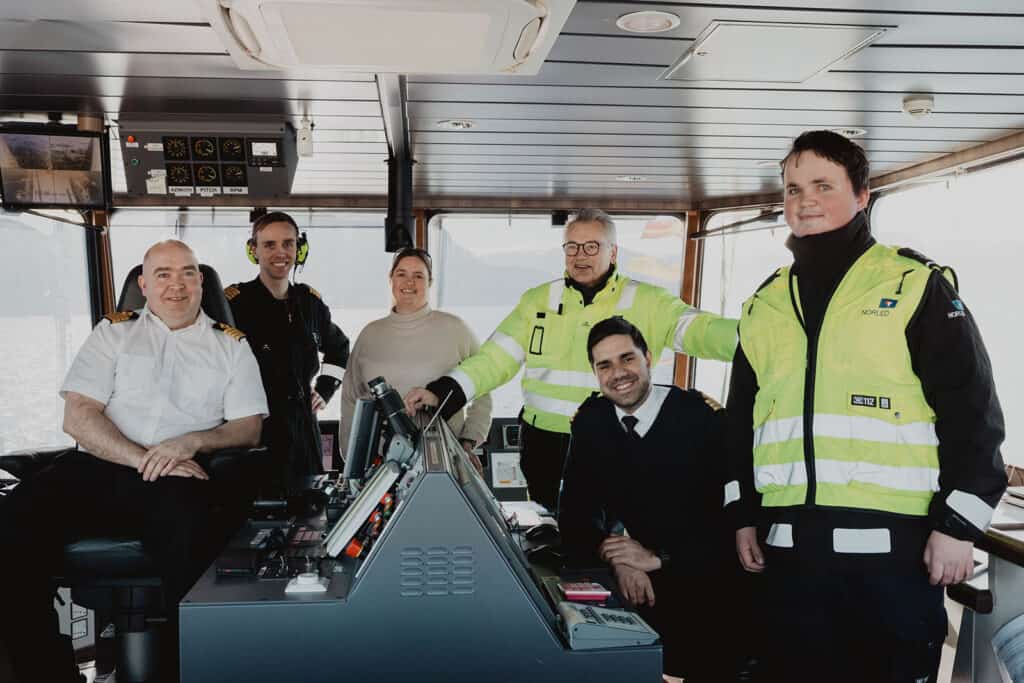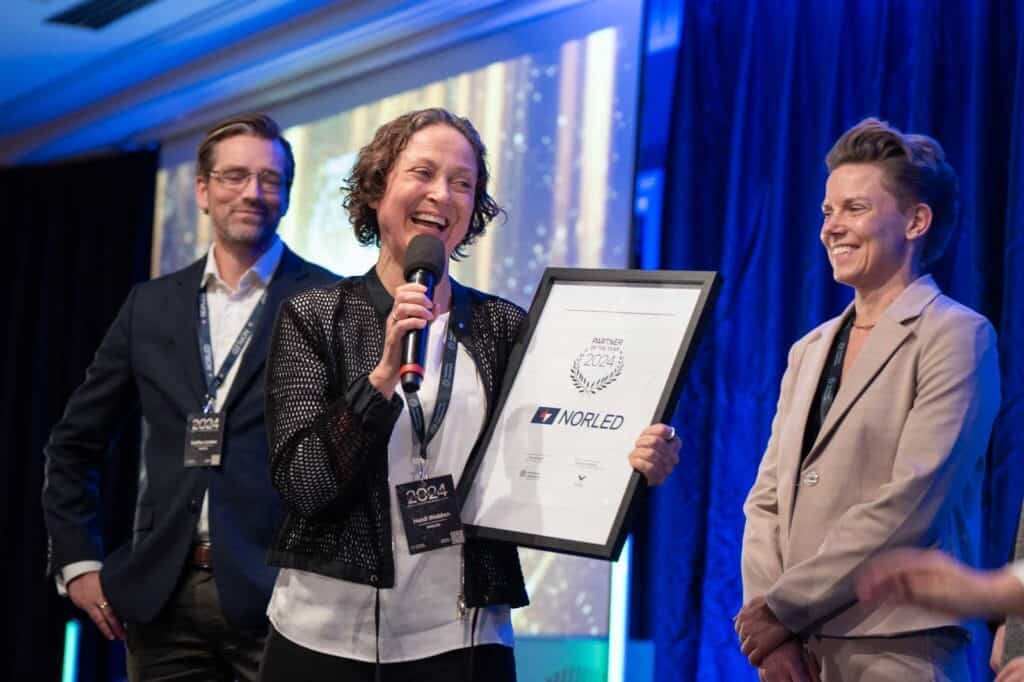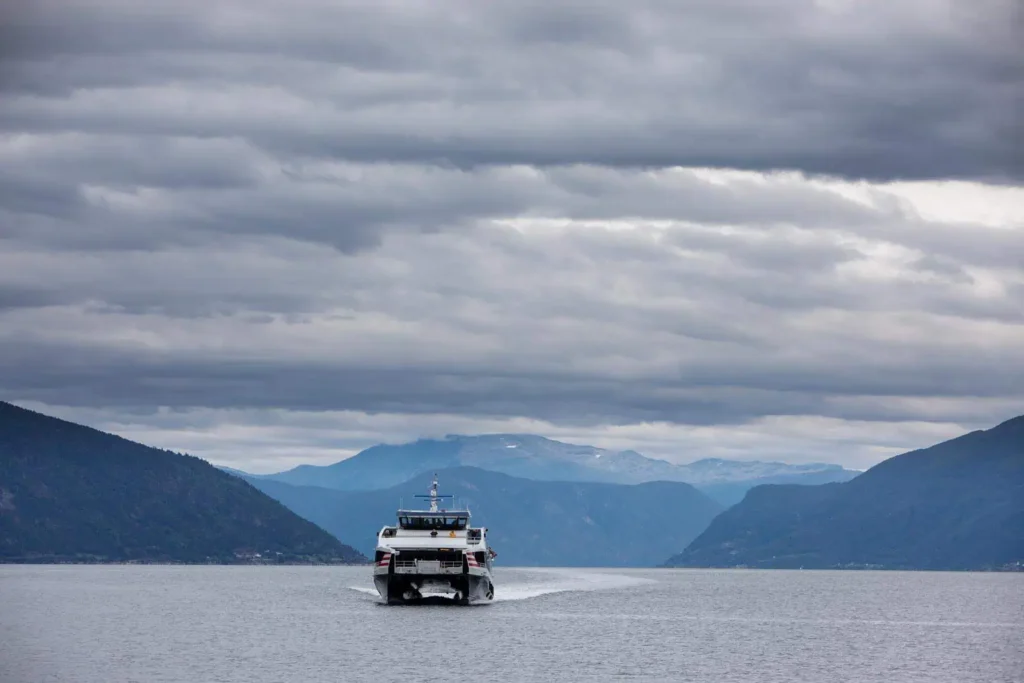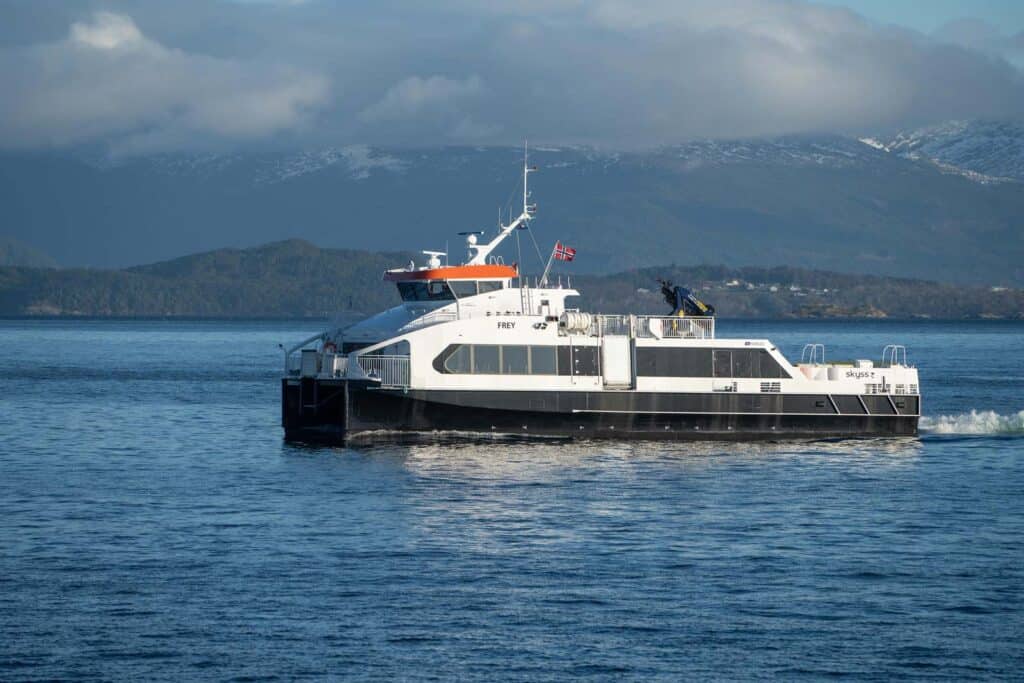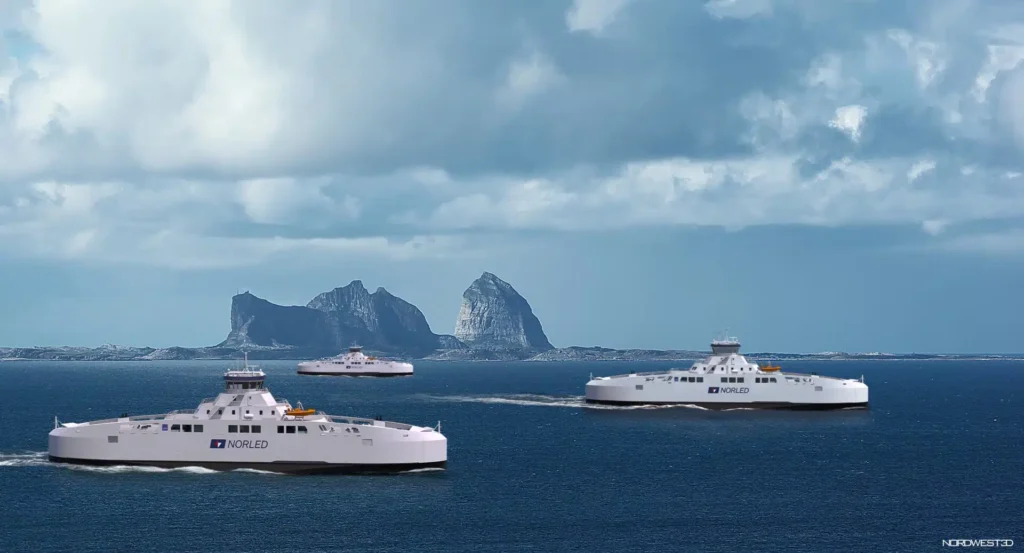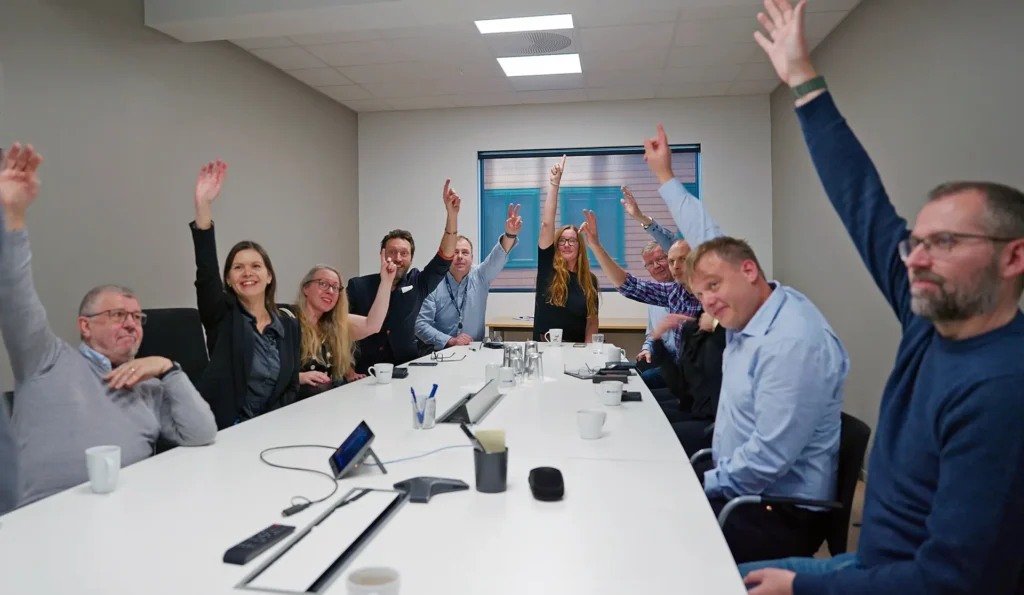During the fall and winter, the new vessels will be put into service on hybrid power. The next step is to use battery-swapping robots that allow the boats to run on battery power all the time.
The vessels are owned and operated by Norled on behalf of Ruter, and the conversion was carried out at the Brødrene Aa shipyard in Eikefjord.
The electrification of Ruter’s express boats will result in annual CO2 savings of 2,600 tons.
– We’ve already put electric ferries and island boats into operation. Now it’s the turn of express boats. This is demanding, but also important, because diesel-powered express boats are the form of transport with the largest CO2 footprint per passenger kilometer,” says Ole Jakob Aanes, Area Manager at Ruter.
MS Baronen and MS Baronessen will join the B11 and B20 services. Last year, just over 250,000 passengers boarded the B11, while approximately 160,000 passengers boarded the B20.
– Without a doubt, we look forward to offering our customers a modern and upgraded journey with the Baron and Baroness,” says Ole Jakob Aanes.
Upgraded vessels with universal design
In addition to facilitating battery operation, both hulls have been lengthened by around 10 meters and have become more energy efficient, with better buoyancy and less drag.
The boats have also received a solid upgrade of the conditions for travelers, with new furnishings and windows. The interiors of both vessels have been significantly upgraded with better universal design. This includes more space for wheelchair users, a wider gangway and lower thresholds.
The Baron has room for 250 passengers and the Baroness for 180. There’s also plenty of room for bikes, with bike racks for 18 bikes on Baronen and Baronessen for 20.
– Unfortunately, the vessels have been somewhat delayed from the shipyard, partly due to capacity problems and component shortages and partly due to time-consuming innovative solutions on board. Now they are finally back, with innovative technology and significant upgrades that will benefit passengers. We look forward to welcoming everyone on board and hope that people will take a look around and appreciate what we consider to be very nice boats,” says Bjørn Egil Søndenå, Speedboat Manager at Norled.
From hybrid to battery
The vessels have been converted to sail battery-electrically. The Baron will have three battery packs on deck, while the Baroness will have two. The batteries will be changed during the minutes the vessels are docked using the SHIFTR battery changing robot. The first robots are currently being tested and are expected to be delivered on an ongoing basis when they are ready.
Until the battery robots are installed, operations will be based on a combination of battery and diesel operation, or pure diesel operation
– The express boats of the future must be emission-free. At the same time, they must be able to achieve sufficient speed, and they have such a short docking time that it is not practical to fully charge the batteries from land. Rapid battery changes with SHIFTR are our answer to this challenge,” says Heidi Wolden, CEO of Norled.
About SHIFTR
The SHIFTR robot is the first of its kind in the world. It has a crane that lifts batteries into and out of the express boats within minutes while passengers get on and off. On land, the batteries are placed in a magazine for charging. This means that charging can take place gradually over time. Everything is automated and the robot is designed to withstand harsh conditions, including wind, seas and tides. Work on the robot has been ongoing since 2021. The SHIFTR venture is located in a subsidiary of Norled.
